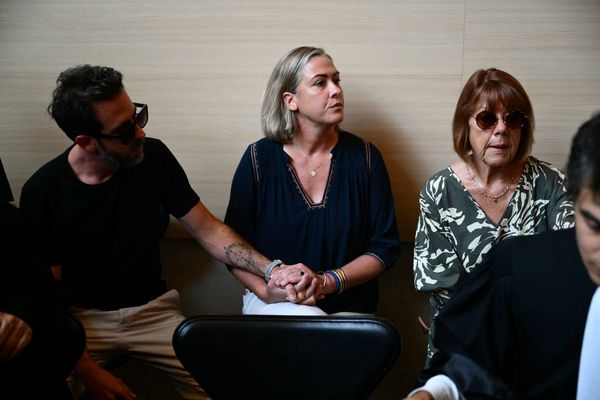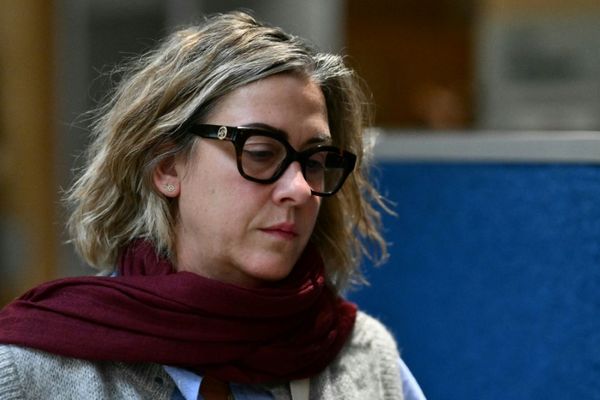Leslie Odom Jr. was having a perfectly good TV career, with recurring roles in such series as "CSI: Miami," "Smash," "Person of Interest" and "Law & Order: Special Victims Unit." Then he landed Aaron Burr in the much-honored Broadway hit "Hamilton" _ winning one of its 11 Tony Awards and singing that showstopper "The Room Where It Happens."
Now Odom, 38, plays another historical figure: 19th-century Philadelphia businessman and abolitionist William Still in the Harriet Tubman drama "Harriet," opening in theaters Friday. Secretly a leader of the Underground Railroad, a network of safe houses that helped escaped slaves find freedom, he was among those who aided the daring Tubman as she repeatedly risked death traveling south to liberate slaves.
Born and raised in Flushing, Queens, N.Y., before moving with his family to Philadelphia at about age 7, Odom earned a fine-arts degree from Carnegie Mellon University in 2003. In addition to acting, he has released jazz albums and an inspirational book for young readers. Odom, who with his actress wife Nicolette Robinson has a 2 {-year-old daughter, Lucille, spoke with Newsday contributor Frank Lovece.
Q: Playing historical figures can be tricky, especially if their family is still around. William Still's descendants include Women's Basketball Hall of Famer Valerie Still and former NFL player Art Still. Did any Still family-members consult on the movie or contact you about playing William?
A: Not yet! (laughs) Yeah, we'll see what they say. Our movie's the first major motion picture about Harriet Tubman who had been the subject of the 1978 TV miniseries "A Woman Called Moses" ] and I don't know if there's ever been a movie about Mr. Still ... but I think we'll see more. I mean, William Still, that's a big story, it's a fascinating life. His descendants certainly could get together and decide that they want to tell his story more fully or from his point of view.
Q: Different actors approach playing historical figures differently. Some don't want to be influenced by anything other than the script, others do heavy research. Where do you fall on that spectrum?
A: Oh, I want all the research I can do! The only unfortunate thing is sometimes, as an actor, you can be brought on so late, you know? Sometimes you might be shooting a movie at the same time or you're doing another job at the same time. I wish that I'd had more time before this movie to do research. I did a fair amount, but I mean, I think I maybe had three weeks, and it's not like I had three weeks sitting at home _ I was in the middle of working and doing 50 other things. So I had make time to do research. Growing up in Philadelphia. I had known about William's work with the Underground Railroad, but I'd never taken the time to learn anything about his family or what might have led him to pursue that passion.
Q: Did doing "Harriet" pique your interest in your own genealogy, to see if you descended from slaves?
A: Yes, it inspired me to do that. I've been gathering pictures, records and stories of what came before me. But also, having a kid does that, too, because suddenly you want to really, really understand where you've come from so that they'll know where they came from.
Q: Have you learned whether your family came from slaves or freemen or, I dunno, immigrated here on a ship in the 1930s?
A: I know as far as my great-grandparents. My great-grandfather was a sharecropper in South Carolina. And I knew him _ I met him. He lived until I was 8 or 9 years old. So I know as far back as sharecropping. I don't know for sure beyond that. But this was South Carolina, so I imagine there might have been slavery . But I don't know for sure.
Q: After having fictionally met Harriet Tubman, what are your thoughts on the Treasury Secretary in May saying they'd canceled the Harriet Tubman $20 bill?
A: Harriet conquered fiercer odds than whether or not she was on a piece of American currency. I think it would be a wonderful way to honor her, but I can't imagine that she cares very much where she is.
Q: Well, I mean, she's passed away, so of course she doesn't.
A: I have a different sort of view about when people pass and where they go. ... I know there are people for whom it's important, and it would be a lovely gesture. But I'm also looking for real systematic change. Images matter and representation matters, all that's true. But that's not the only thing that matters. So I choose to remain focused on the big picture. Like this business now where Broadway dims its lights when people pass away. It's more important to have a personal acknowledgment and a personal pause in my life to ruminate on these people's accomplishments and their contributions ... instead of making it about symbols and empty gestures.







